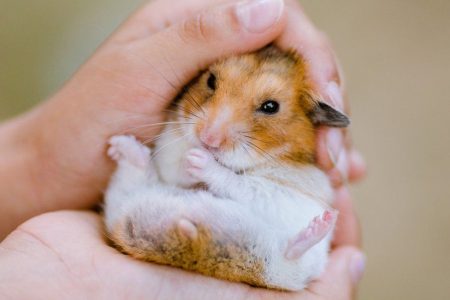Hong Kong plans to cull some 2,000 hamsters and other small mammals over a Covid-19 outbreak linked to a pet shop in the city.
An outbreak of the Delta variant linked to a worker in the shop prompted officials to test hundreds of animals there – with 11 hamsters positive.
Unlike many other places, Hong Kong has maintained a “zero Covid” strategy focused on eliminating the disease.
Officials said it may be an example of animal-to-human Covid transmission.
Only the hamsters at the pet shop seemed to be affected, with negative results for other animals there such as rabbits and chinchillas. But as a “preventative measure”, 2,000 hamsters and other small mammals will be killed.
The animals are spread across 34 different pet shops and animal storage centres.
And any new pet owners who bought a hamster since 22 December, perhaps as a Christmas gift, will need to hand the animal over to authorities for euthanasia.
A telephone hamster hotline is being set up, and a ban on the import and sale of hamsters and other small mammals will also be enacted, agriculture officials said.

Image source, Getty Images
A pet-shop employee, a customer, and the customer’s spouse have now tested positive or provisionally positive, health authorities said.
The virus that causes Covid-19 – Sars-Cov-2 – can be caught by animals including dogs, cars, ferrets and rodents, all commonly kept as pets. But there is no clear evidence that pets can easily pass the infection to humans.
- First UK Covid case in pet dog confirmed by vet
- Snotty-nosed hippos test positive for Covid
“Pet owners should keep a good hygiene practice, including washing hands after touching the animals, handling their food or other items, and avoid kissing the animals,” Hong Kong’s agriculture department director Leung Siu-fai told reporters at a news conference.
Hamster owners in particular “should keep them at home”, she said.
She also promised that the 2,000 animals scheduled for culling would be put down “humanely”.
In late 2020 millions of farmed mink in Denmark were put down amid fears around mutations to the virus potentially occurring within the animals.
